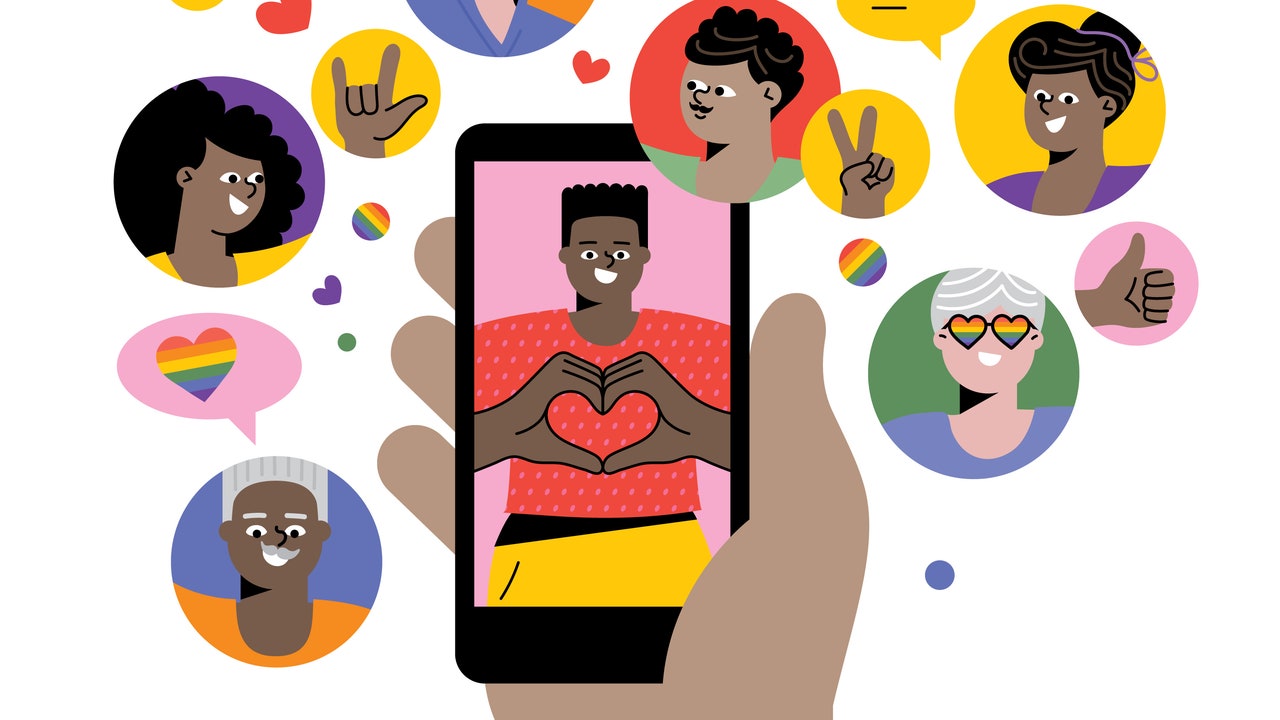For artist and filmmaker Ayo Lawson, expressing her identity online is not just a way to connect with the queer community, but to show queer Nigerians that there are others like them. Lawson says she started making TikTok videos to show others that laws can’t govern our emotions. “I had to show people that there is always a way to be authentic in Nigeria, to be open and proud or even just to represent and maybe educate some homophobes,” says Lawson Teen Vogue.
With more than 5,000 tick tock followers and nearly 100,000 views, Lawson’s TikTok is filled with videos of her friend and her authentic life, showing her connections to the world and being proud. “I love TikTok because it’s a safe place for me to post queer shit and my relationship and just be myself without fear of my family seeing.”
In Nigeria it is Law Prohibiting Same-Sex Marriage (SSMPA) was signed into law by former President Goodluck E. Jonathan in 2014. The law bans same-sex marriages and relationships, bans people from registering with LGBTQ organizations, and bans public affection between same-sex people. The penalty for violating the law is up to 14 years in prison. In some parts of the country, Sharia law can condemn queer people to it death by stoning. These laws force the LGBTQ+ community to hide in plain sight. For many community members, social media is a way to exist freely without fear of arrest.
“For queer Nigerians, social media is a safe haven for community engagement and mobilization, expression and movement building,” says Kayode Timileyin, archivist, producer and founder of QueerCity Media, Nigeria’s first weekly LGBTQ Podcast. “That’s why queer Nigerians can use social media apps like TikTok without fear of arrest.”
For Fola Francis, a trans woman who uses TikTok to document her life and dispel the myth that trans people don’t exist in the country, the platform is both exciting and exhausting for her. “Sometimes your video can leave you [intended] audience, and that could cause a lot of stress,” says Francis. “But at the same time, it also connects you with your community, which is the main goal. So for me it is a great medium to document my journey and I am grateful for it.”
Skylarr Starr, a trans femme in Nigeria with nearly 1 million likes and 7,000 followers, social media apps like TikTok are a way to connect with the queer community.
“TikTok is literally my safe place, and my videos rarely reach bigoted people, so it’s just a small community of queer siblings cheering for each other, which makes me forget about things that happen in real life.” For Starr, social media is “liberating and rejuvenating” because while they can’t get out of the closet in real life, they’re roaming around on TikTok and continue to use it as an escape route without judgment.
Nevertheless, the use of social media for queer Nigerians is not always without consequences. On Nov. 1, a TikTok video Lawson shared after attending a Halloween ball in Lagos went viral, revealing her identity in a way she didn’t expect. That video, which has since been removed, showed queer people making fashion and having fun. When it was reposted on Twitter, the homophobic comments started rolling in.
